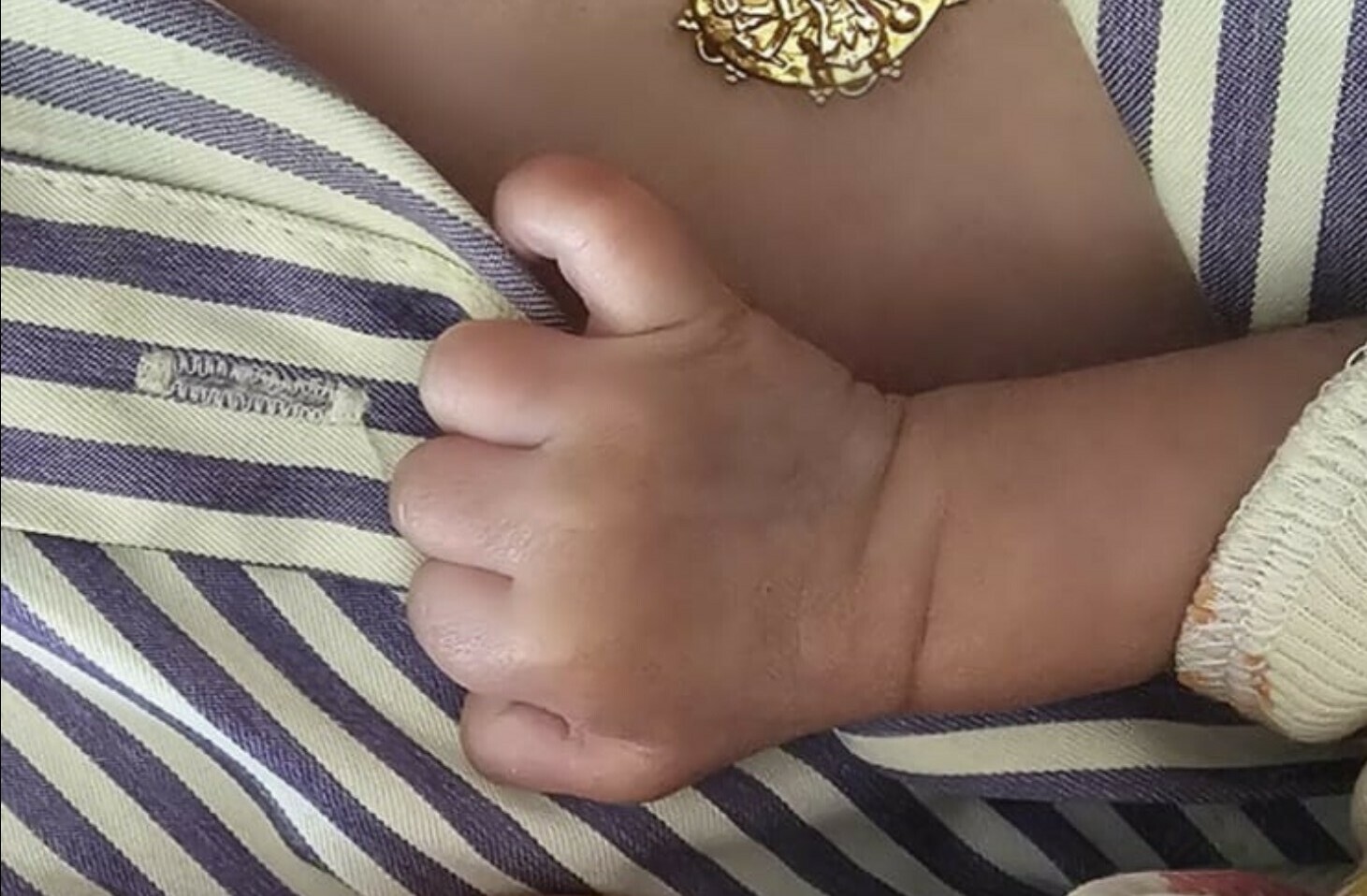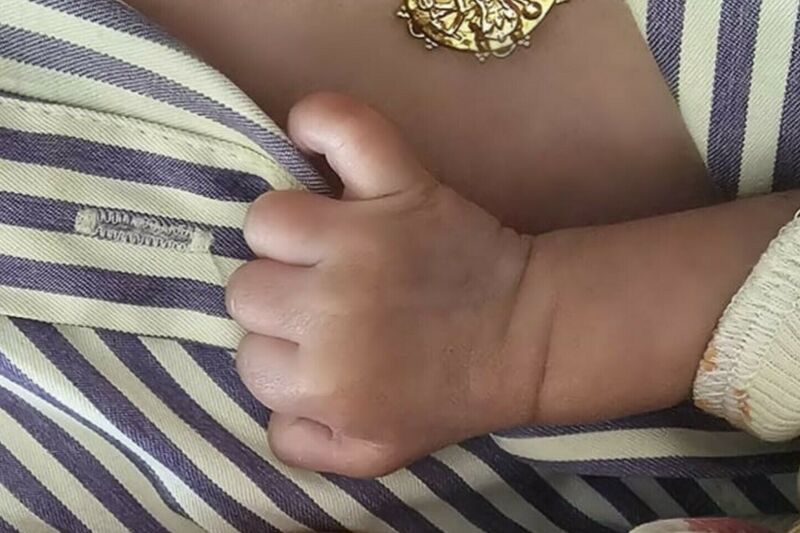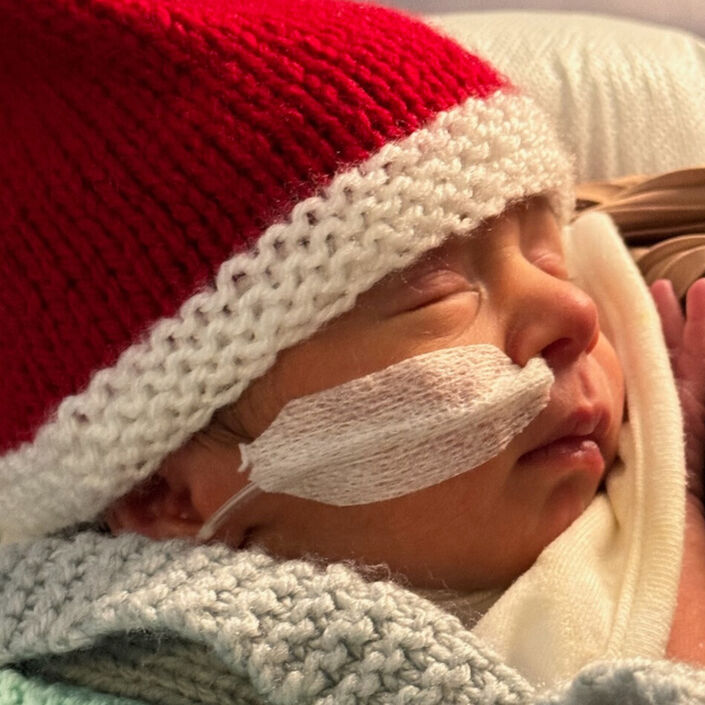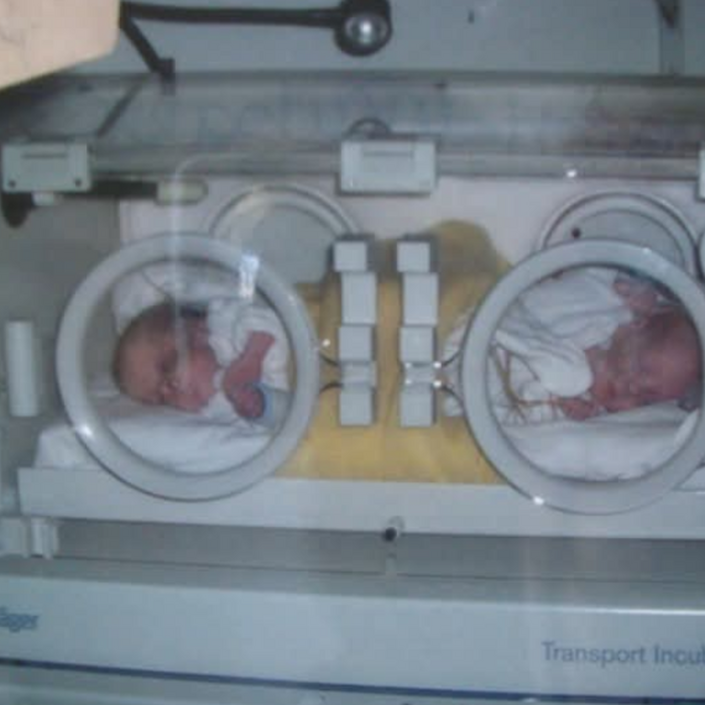Before Arohya was born, I didn’t even know the neonatal team existed. Like most parents, I imagined pregnancy following a familiar path — excitement, scans, a birth plan, and finally, bringing a healthy baby home. I never expected to find myself in a world of monitors, magnesium drips, and whispered prayers.
At 25 weeks and 2 days, everything changed. My waters broke suddenly, and I was admitted to hospital. Those first ten days were a blur of uncertainty and fear. The doctors and nurses worked tirelessly to delay labour — administering magnesium drips, antibiotics, and steroid injections to help my baby’s lungs develop. Each day she stayed inside felt like a small miracle.
Being in the hospital for so long was incredibly hard, but what broke me most was being away from my eldest daughter, who was only three at the time. I missed her bedtime cuddles, her laughter, and her little voice asking when mummy would come home. I tried to stay strong, but the truth is, the emotional pull between one child at home and another fighting to stay alive inside you is something no mother is ever prepared for.
After ten days, my condition appeared to stabilise. I was discharged on a Monday evening, relieved but anxious. Less than twelve hours later — in the early hours of Tuesday morning — I was back in hospital with intense pain.
I knew deep down that this time, labour wasn’t going to stop. Because of my medical history — a pulmonary embolism following a missed miscarriage — I had been on blood thinners throughout my pregnancy. I’d come off them for 48 hours due to the risk of bleeding, but those hours were frightening. I knew I was at high risk of another clot, and I was acutely aware of how delicate the balance between life and loss could be.
When the time came, the doctors gently warned me that my baby might not cry when she was born. But she did. That small, defiant cry filled the entire room. It was the loudest, most beautiful sound I have ever heard. In that moment, I knew she was a fighter — and I knew we would both make it.
Arohya was born so tiny, but with a strength that amazed everyone around her. The neonatal team moved swiftly, surrounding her with care and precision. They were calm, compassionate, and unbelievably skilled — they didn’t just save my daughter’s life; they helped me find the courage to keep going.

After her birth, I remained in hospital for another ten days while recovering and watching her fight. The neonatal unit became our second home. I learned to read the rhythm of beeping monitors, to find comfort in numbers on a screen, and to celebrate the smallest milestones — a stable feed, a steady heartbeat, a few grams gained.
Balancing this with life at home was heart-wrenching. I was still recovering physically, juggling visits to the NICU while trying to maintain a sense of normality for my toddler. There were moments of guilt, moments of exhaustion, and moments where I simply sat in silence, torn between two worlds. But through it all, both my girls reminded me of what love and strength really look like.
Leaving the neonatal unit weeks later was both joyful and terrifying. I had lived in a place where help was always seconds away — where every alarm meant action, and every staff member knew exactly what to do. Stepping out into the quiet of home felt almost unnatural. But the follow-up support made the transition easier — from neonatology and physiotherapy to audiology and ophthalmology, every department played a vital role in helping Arohya continue to grow stronger.
Today, she is thriving. Full of light and laughter — strong, determined, and every bit the little miracle she was the day she cried her way into this world. Watching her now, it’s hard to believe she was ever so tiny. Her name, Arohya, means “ascending” — and that’s exactly what she’s done from her very first breath. This journey changed me completely. It stripped life down to its essentials — love, faith, and gratitude.
It taught me patience, humility, and what it means to truly surrender control. I learned that motherhood isn’t just about nurturing — sometimes, it’s about surviving.
If I could offer one piece of advice to other parents beginning this journey, it would be: take it one hour at a time. The days in neonatal care are long, and the nights are longer, but your baby’s strength will guide you through. Trust the process, trust the team, and trust yourself — you are stronger than you think.
Before this, I had no idea what went on behind the doors of the neonatal unit. Now, I can’t imagine life without acknowledging that world — a place where science and love meet, where miracles happen every day, and where the smallest babies teach us the biggest lessons.
To me, Bliss represents hope, compassion, and community. It’s knowing that someone else understands — the fear, the waiting, the quiet strength it takes to get through. Bliss gives families like ours a voice and ensures that premature babies and their parents are never forgotten.
Arohya's cry changed everything. It wasn’t just the sound of a newborn — it was the sound of survival, of faith, and of love overcoming fear. And every time I hear her laugh now, I’m reminded that miracles don’t always arrive on time — sometimes, they come fifteen weeks early and save your life in the process.


